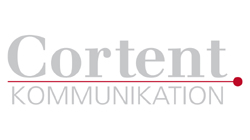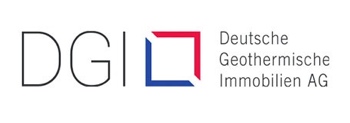VIPsight - December 2015
COMPANIES
VTG: On the right track
![]() Railway logistics expert VTG AG is forecasting a group turnover for this year of between 1 and 1.1 billion Euros. Results coming in for the third quarter of 2015 confirm an increase in turnover to some 764 million Euros, a 25 percent rise over the corresponding period of last year.
Railway logistics expert VTG AG is forecasting a group turnover for this year of between 1 and 1.1 billion Euros. Results coming in for the third quarter of 2015 confirm an increase in turnover to some 764 million Euros, a 25 percent rise over the corresponding period of last year.
EBITDA has increased to approximately 256 million Euros, almost 83 percent higher than last year. The SDax-listed company commented that the increase is mainly a result of the AEE takeover of rolling stock rental. The EBITDA of this specific area alone is up by more than 80 percent on the corresponding period of last financial year and stands at approximately 254 million Euros. The performance of other business areas in logistics, such as rail logistics or tank containers on rail, has also improved over the last nine months. From next year on, VTG intends to lower its financial burden which, combined with other measures to be adopted by the end of 2018 will yield 2,50 Euro per share.
GfK: light growth
 SDax-listed market research company GfK SE has improved its turnover and profit over the last 9 months compared to the corresponding period of last financial year. The company has announced a rise of 6 percent in turnover which now stands at 1.12 billion Euros. EBIT, by contrast rose by more than 3 percent to 100 million Euros. While business in North Europe has dipped slightly, remaining unchanged in the South and East, sales in other areas have gone up. It is also true, however, that GfK SE has been favoured by positive currency shifts.
SDax-listed market research company GfK SE has improved its turnover and profit over the last 9 months compared to the corresponding period of last financial year. The company has announced a rise of 6 percent in turnover which now stands at 1.12 billion Euros. EBIT, by contrast rose by more than 3 percent to 100 million Euros. While business in North Europe has dipped slightly, remaining unchanged in the South and East, sales in other areas have gone up. It is also true, however, that GfK SE has been favoured by positive currency shifts.
Cewe: The home straight
Cewe Stiftung& Co. KgaA, SDax-listed producer of online photograph books and prints, is forecasting an increase in turnover and revenue for 2015. With group turnover up by almost 3 percent to approximately 338 million Euros for the first nine months accompanied by an increase in EBIT of almost 13 percent, the company feels confident in confirming this year’s forecast turnover of between 515 and 535 million Euros, and an EBIT of between 32 and 38 million Euros. In the quarter leading up to Christmas, online prints and photofinish are known to register sizeable increases so it seems perfectly reasonable that Cewe succeeds in achieving its targets for 2015.
The German Mittelstand
Intra-company generation turnover: SMEs call for clear guidelines

75 per cent of the new generation of likely successors in family-run SMEs are unwilling to settle for mere partnership roles and are seeking positions of operational power. This was the result of a survey presented at the beginning of November entitled “The Upcoming Generation of German Entrepreneurs” conducted by the Zeppelin University of Friedrichshafen jointly with the Familienunternehmen Foundation, interviewing 315 sons and daughters of entrepreneurial families aged between 16 and 40.
Commenting the survey, Stefan Heidbreder director of the Familienunternehmen Foundation pointed to the somewhat striking discovery that the majority of potential successors (549) could see themselves working in a team that included executives from outside. One of the most important aspects that emerged above all in large-scale family-run businesses was the much higher level of professionalism of this, as opposed to past generations. It therefore comes as no surprise that only 12 percent of interviewees could see themselves selling the family business.
Despite this surge in entrepreneurship, the “generation of heirs apparent” is fully aware of the areas of criticality. There is a real fear that the succession process be hamstrung by lack of regulatory clarity. Only one fifth of interviewees talk of hard and fast plans as to the roles and responsibilities of the respective generations involved in the succession process while 66% of family-run SMEs have no written code of basic rules. The means that that when there is ambiguity in the term of departure of the senior entrepreneur, for example, the risk of conflict, strife and interference is indeed high.
The survey reflects a strong feeling of comprehension on the part of the incoming generations. They show great awareness of the difficulties that their predecessors find themselves in, in taking on the mantle of mentor and sparring partner while giving away ever more scope and freedom to the young turks.
The seniors must therefore find and strike the balance between granting support and giving freedom. Written agreements can go some way to helping both sides to focus their efforts on what is really important in the succession process, namely furthering the long-term development of the company in the interests of all the stakeholders.
Buhlmann's Corner
In Germany things tend to be a bit different
 Our democracy encompasses us all, we have co-determination between representatives of capital and representatives of the workers, and we’ve got rules that don’t apply to everyone.
Our democracy encompasses us all, we have co-determination between representatives of capital and representatives of the workers, and we’ve got rules that don’t apply to everyone.
One of these ‘don’t apply to everyone’ is what we call ‘cooling off’, namely a time out when members of the executive board may not move up to the Supervisory Board. To avoid conflicts of interest.
This is a period when occupancy of a new position should not enable you to make use of previously acquired knowledge that’s still warm. A time when specific notions are made to cool down. A concept that is just as important as is the specific time required for it which, for a CEO is 24 months. This was enacted and made law by a democratically elected body, namely the Bundestag, voting § 100 II lit4 of the German law on joint stock companies..
Trade union leaders, however, have things differently. Their position as leaders gives them freedom to decide freely how and when the judge summons them to whatever Supervisory Board. This is what happened with Roman Zitzelsberger, local secretary of IGM Metall in Baden Württemberg who, similarly to his predecessor Franz Steinkühler joined the Supervisory Board of Daimler. And why not? It’s true he isn’t a worker but parliament has endowed trade union officials with right of access to court.
The situation regarding his boss is completely different. The leader of the vanguard in IG Metall Jörg Hofmann has (and he may well feel like adding ‘at long last’) convinced his predecessor Berthold Huber to resign not only his union post in IG Metall, but also his mandate in the Supervisory Board of Volkswagen. I just hope that anyone who thinks that this is in any way linked to the present day situation in Volkswagen, is mistaken.
Yesterday, Jörg Hofmann tendered his resignation from the Supervisory Board of Daimler and today has been appointed almost deus ex machina by an omnipotent judge as new member to the Supervisory Board of Volkswagen. The intelligentsia (there is a certain measure of preparedness that trade union leaders have come to have expected of them) glides seamlessly from the Supervisory Board of Daimler to that of Volkswagen without a second being dedicated to cooling off.
What is the marketing message to be drawn? That power wins? Or that number one gets to choose the best position at the right time before number two. In the former post his fee was 183,400 Euros per year whereas the per annum emolument of the outgoing member of the new one was 937,000 no less. A handsome salary even for a trade unionist.
It should also be said that, similarly to his predecessor, the odds of Hoffman’s election to the chair of the Supervisory Board of Volkswagen are highly favourable, another boost to his fee. The drawbacks however are substantial. The chair is almost literally very hot; as the person in charge of the company’s external relations he is the embodiment of the many and, if summed together potentially lethal class actions that Volkswagen will have to face. Considering this conflict of interests, the judge’s ruling, handed down in the greatest independence devoid of any intel or knowledge of the facts is, indeed, very daring. The extraordinary shareholders’ meeting was highhandedly cancelled to prevent a tsunami of unwanted issues.
Supervisory Board member Hofmann’s task will be to reassure the public that “I’m not in it for the money – My job here is marketing”.
Coincidentally, in the run-up to the world summit on climate change, Allianz CEO Oliver Bäte, made front page news with “we sell everything that heats the planet” (no more investing in coal-based energy – but still present investments amount to 4 billion Euros). This attitude makes me think of a father who catches his child plundering the cookie jar and throws him out on the street instead of setting a good example and explaining in simple terms that he can understand that we’re all in the same boat and duty bound to act responsibly towards our fellow human beings.
It’s true, there are others preparing education oriented programmes (Norge/NBIM as opposed to Wal-Mart as opposed to ….) but this approach alone will not lead to better behaviour either in awareness or in absolute terms.
On the other hand we’ve just learned that what is sauce for the goose is not necessarily sauce for the gander. We all have room for improvement and for behaving with greater awareness. Let’s make this our contribution towards improving 2016.
Let’s all get to it! .... not just those for whom rules and regulations are things of great worth.
People
DGI: new composition of Supervisory and executive boards
 After being approved for trading on the primary market of the Düsseldorf Bourse in November, Geothermische Immobilien AG (DGI) has been obliged to make changes in its executive and Supervisory boards in order to measure up to the required standards of transparency.
After being approved for trading on the primary market of the Düsseldorf Bourse in November, Geothermische Immobilien AG (DGI) has been obliged to make changes in its executive and Supervisory boards in order to measure up to the required standards of transparency.
The two newcomers to the Supervisory Board of the geothermic development concern are Marcus Opitz and former chair of the executive board of PNE, Martin Billhardt. In recent years, both have measured up to the positions of CEO and CFO, and both have the required familiarity with the real estate market. Christian Langbein will continue in his present position on the board. Marcus Opitz will become chair.
The executive board has been extended to include the post of CFO. The new appointee is Stefan Bieber. After a period as branch manager of DeutscheBank, and Vice President of Merrill Lynch, Bieber was Director of Credit Suisse Germany immediately prior to joining DGI.
PSI: Farewells in the Supervisory Board
At year’s end, the chair of the Supervisory Board of PSI AG will stand down. A spokesperson for the Prime Standard-listed software house announced that Rolf Windmöller is resigning for health reasons. PSI will apply to the court to appoint a successor to serve out the remainder of his mandate.
Heliocentris: quick change
Sabine Kauper has been appointed the new CFO of Heliocentris Energy Solutions AG. Kauper, whose appointment to the Prime Standard listed company becomes effective from 2016, resigned from the executive board of SKW Metallurgie in October. The other members of the executive board of the distributor of energy management systems are CEO Ayad Abul-Ella and CTO Hernik Colell. From 2007 to 2011, Kauper was CFO in TecDax-listed Phoenix Solar AG, and from 2014 to 2015 CFO in steel manufacturer SKW Stahl-Metallurgie, where previously she had been a member of the Supervisory Board.
M & A
Aurelius: Christmas Shopping
 Up until the end of the year, Aurelius AG, a holding company m:accesss-listed on the Munich Stock Exchange, has been out buying up companies that include the cloud business of the Colt Group S.A., the trading sector of the Swiss Commerce group Valora Holding AG and the Reuss-Seifert & Hammerl Group.
Up until the end of the year, Aurelius AG, a holding company m:accesss-listed on the Munich Stock Exchange, has been out buying up companies that include the cloud business of the Colt Group S.A., the trading sector of the Swiss Commerce group Valora Holding AG and the Reuss-Seifert & Hammerl Group.
The purchase of the Colt Managed Cloud business enables Aurelius to extend the activity of its Getronics subsidiary. According to sources within the group, total turnover for CMC this current year is forecast at 77 million Euros. Valora Trade completes the Aurelius portfolio in consumer goods and paves the way towards a clientele of more than 120 million consumers in seven European countries. Industrial production is extended by the takeover of producer of building materials for cement mixing Reuss-Seifert & Hammerl. The company, with its 300 employees and six manufacturing plants in Germany and Poland posted a turnover for 2014 of some 60 million Euros.
Nordex: synergies boost turnover
 TecDax –listed Nordex SE has purchased the Spanish windpower specialist Acciona Windpower for approximately 785 million Euros. 366 million Euros will be paid in cash and 419 million in the form of 16.1 million new shares to the parent company Acciona S.A. The Spaniards will therefore retain 30 percent of ownership of Nordex, while firstly the holding of former majority shareholder Skion/Momentum and then secondly that owned by Supervisory Board member Jan Klatten will be cut back to 6 percent3. The deal also requires Acciona to increase its holding of Nordex over the coming three years to more than 30 percent by direct and indirect share purchasing. The Monopolies Commission still has to give its approval.
TecDax –listed Nordex SE has purchased the Spanish windpower specialist Acciona Windpower for approximately 785 million Euros. 366 million Euros will be paid in cash and 419 million in the form of 16.1 million new shares to the parent company Acciona S.A. The Spaniards will therefore retain 30 percent of ownership of Nordex, while firstly the holding of former majority shareholder Skion/Momentum and then secondly that owned by Supervisory Board member Jan Klatten will be cut back to 6 percent3. The deal also requires Acciona to increase its holding of Nordex over the coming three years to more than 30 percent by direct and indirect share purchasing. The Monopolies Commission still has to give its approval.
Nordex’s aim, beginning early 2016, is to dovetail activities with those of Acciona to jointly provide a single unified programme worldwide. Its intention is to make use of synergies to boost its turnover from 4.2 to 4.5 billion Euros over the next three years. The 2015 forecast turnover for the two companies, still separately run, totals 3.4 billion Euros.
MBB: working together in electromobility
MBB SE, a Prime Standard-listed SME, has acquired a 75% stake in the Aumann Gruppe. Aumann is specialised in the production of plant and machinery, supplying the automobile industry with wire-enamelling and -winding technology, and automation solutions for producing electric motors. MBB has announced that the majority holding will foster the development of automation in electricity-powered mobility. Aumann will keep its name, its management and its factories in Germany, China and the USA. The price of the transaction has not been made public.
TLG: More capital to buy more property
SDax-listed TLG Immobilien AG, has increased its capital by some 102 million Euros by issuing 6.13 million new shares. The shares were taken up by institutional investors for an issuance price of 16.60 Euros per share within a fast-track placing procedure. After the transaction costs have been met, the company will still have about 101 million Euros which, according to TLG is to be used for buying and selling more property and thereby boosting growth. The initiative raised share capital by 10% from 61,302,326 to 67,432,326 Euros. Since its stock exchange début in 2014, TLG Immobilien has made acquisitions to the tune of 280 million Euros.
Steilmann: IPO at last
Steilmann SE, the family run apparel manufacturer, is now traded on the stock exchange. Its shares have been listed Prime Standard on the Frankfurt Bourse since November 5. After revising its initial offer, Steilmann was able to place all its stock. It issued 2.25 million ordinary bearer shares and 250,000 green shoe options. The share price of 3.50 Euro each, yielded a gross revenue of almost 9 million Euros. In October, the original idea was to get launched on the stock market with 17 million ordinary shares and 2,550,000 greenshoe option shares in the 3.50-5.00 Euro price range.
A company spokesperson announced that turnover last financial year was approximately 896 million Euros. With its 8300 strong workforce, of which 60 percent based in Germany, Steilmann provides the whole vertical range of services for the value chain of the apparel industry from planning through production up to distribution.















